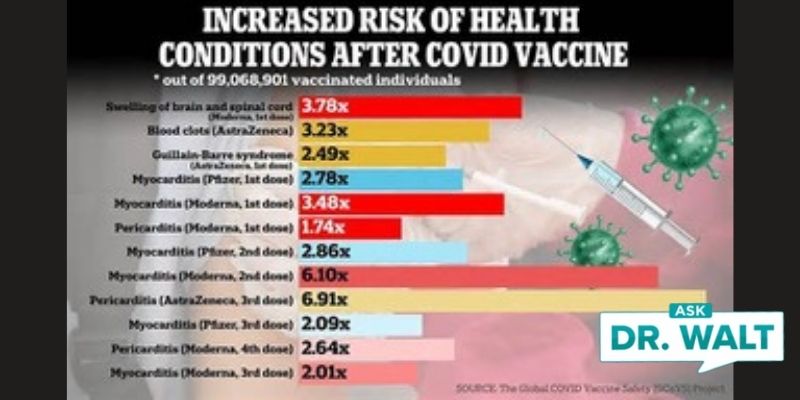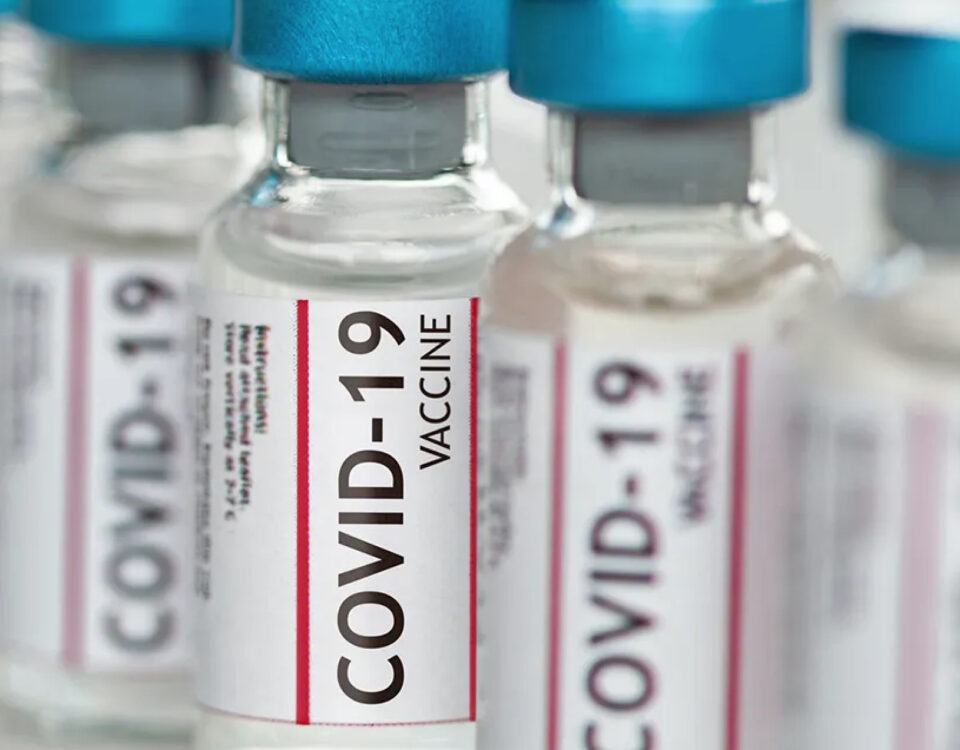Why Omicron should not be called “mild”!

Monthly Family Update – February 2022
February 1, 2022
Think Omicron is mild? Think again if you’re not vaccinated!
February 3, 2022Healthcare and public health experts with whom I’m speaking are increasingly concerned about the media and others calling the Omicron variant of COVID a “mild COVID.” They say, “While there is still much to be learned about the newest variant, there is nothing ‘mild’ about this form of the virus.” As a result, they add, “COVID-19 vaccines, booster shots, face masks, and other prevention measures are more critical than ever to help stop transmission of the virus.” Here’s why they are saying this.
Here’s a nice summary of the current facts we know about Omicron collected by the University of Utah:
Omicron is very transmissible
COVID-19 infection has surged to very high levels in a relatively short period of time in many places around the world. The Centers for Disease Control and Prevention (CDC) expects anyone infected with the Omicron variant can spread the virus to others, regardless of vaccination status or if they are experiencing symptoms.
How rapidly COVID-19 spreads can depend on a number of factors such as low vaccination rates, high-density housing, and minimal mask use in communities. The level of transmission is expected to eventually decline as more people get infected, but at this time there is not enough data to determine a timeline.
Omicron is extremely contagious
Omicron makes more copies of itself more quickly in the upper respiratory tract (nose and throat) than previous variants of COVID-19. This is what likely makes it more transmissible. This data is reflected in the soaring number of positive case numbers of COVID-19 in the U.S.
While the Delta variant is also extremely contagious and is believed to cause more severe disease, especially among unvaccinated people, it has relatively few differences in the spike protein in comparison to the original SARS-CoV-2 virus.
By contrast, Omicron has an unprecedented number of mutations in the spike protein (more than 30), which makes it more difficult for antibodies to recognize it and latch on to the spike protein.
Omicron is infecting more children
COVID-19 hospitalizations for children under 18 are soaring. On January 12, 2022, the CDC reported an 80% increase in new hospital admissions, which is the highest ever reported since the start of the pandemic.
According to Andrew Pavia, MD, chief of the Division of Pediatric Infectious Diseases at the University of Utah Health, we are seeing four times the number of children under age four get sick with COVID-19 caused by Omicron as compared to Delta.
Unlike the Delta variant that causes more severe disease in relatively few children, Omicron is causing more children to be hospitalized overall.
The best way to protect children from getting infected is through COVID-19 vaccination.
- Children aged five and older are eligible for a COVID-19 vaccine.
- Children under age 12 are not yet eligible for a booster shot, but data shows two doses of a COVID-19 vaccine helps protect against severe illness and hospitalization from the virus.
Omicron is a serious threat to health care systems
Due to how transmissible and contagious Omicron is, a surge in new COVID-19 infections is causing sick patients to flood emergency departments, which are becoming overwhelmed.
This is causing an added strain on health care systems across the country that already have reduced staffing due to people leaving the field.
In addition, many staff are becoming sick themselves or taking care of family members who are sick.
While Omicron may cause less severe disease, it is impacting more people at once, which is causing more people to seek medical care during a time when health systems are already under stress.
Unvaccinated individuals are at the highest risk
According to recent data from the Omicron surge, unvaccinated individuals are
- twice as likely to experience symptomatic infection,
- six times more likely to be hospitalized, and
- 13 times more at risk of death than vaccinated individuals.
Furthermore, those who have previously been infected with COVID-19 can be re-infected by different virus variants and pass it onto others.
COVID-19 vaccines and booster shots will protect you
While two doses of a COVID-19 vaccine are not as effective at preventing infection by Omicron, they are still effective at helping prevent hospitalization and death from the virus. The booster will help protect you even more.
Being fully vaccinated and boosted against COVID dramatically decreases your risk of death, ICU admission, being put on a ventilator, hospital admission, and severe illness. It reduces your risk of transmitting the virus to those you love or others in your community — especially the young others who cannot be vaccinated and boosted.
For those who are vaccinated and boosted who do get Omicorn, Stephen Goldstein, Ph.D., a virologist and researcher at the University of Utah says, “Maybe you’ll be sick for three days instead of two weeks.” In other words, COVID-19 vaccines and a booster shot will reduce the severity of illness if you get infected.
Finally, COVID-19 treatments are scarce
There are treatments that can help symptomatic COVID-19 infection, but some have shown to be less effective against the Omicron variant. Out of the three available monoclonal antibody therapies in the U.S., only one works against Omicron, but it is in short supply. Pfizer’s paxlovid pill is also available by prescription to people ages 12 and older, but the supply of these pills is also extremely limited.
The bottom line is that COVID treatments are a very poor substitute for COVID-19 vaccines, which are the best line of defense against the virus.
This blog was accurate as of the day of posting. However, as the COVID-19 pandemic rapidly evolves and the scientific community’s understanding of the novel coronavirus and the COVID vaccine develops, the information above may have changed since it was last updated. While I aim to keep all of my blogs on COVID and the COVID vaccine up to date, please visit online resources provided by the CDC, WHO, and your local public health department to stay informed on the latest news.
© Copyright WLL, INC. 2022. This blog provides a wide variety of general health information only and is not intended to be a substitute for professional medical advice, diagnosis, or treatment from your regular physician. If you are concerned about your health, take what you learn from this blog and meet with your personal doctor to discuss your concerns.







